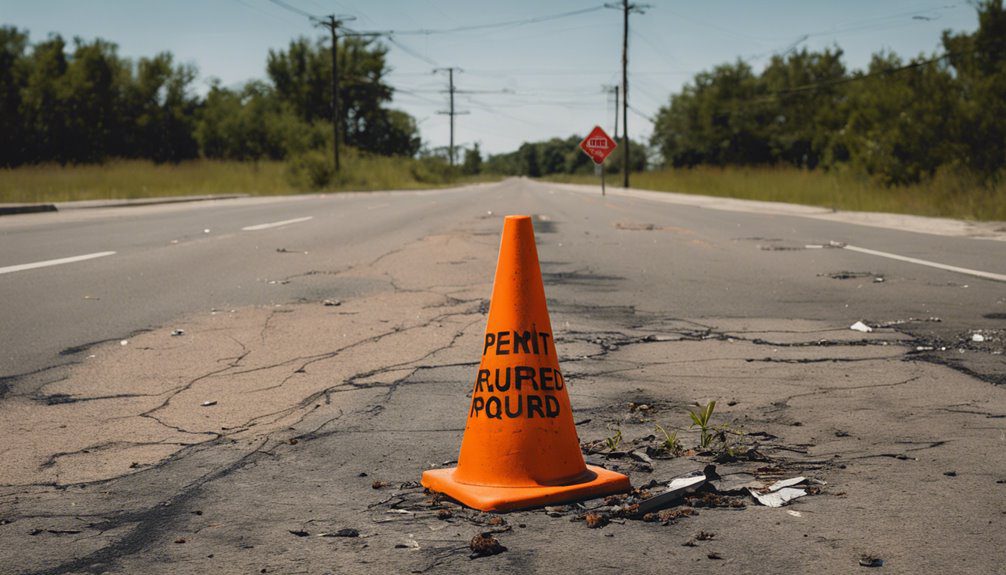When it comes to managing projects that impact Pennsylvania's highways, understanding the Highway Occupancy Permit Obligation Bond is vital. This bond not only ensures compliance with state regulations but also plays a significant role in protecting your interests as a developer. You'll find that securing this bond can enhance your project's credibility and help you avoid costly penalties. But what happens if you don't comply with its requirements? The implications can be more serious than you might think, and exploring these consequences could change how you approach your next project.
Understanding the HOP Obligation Bond

Understanding the Highway Occupancy Permit (HOP) obligation bond is crucial for anyone looking to make modifications near Pennsylvania's roadways. This bond acts as a financial assurance that you'll adhere to state regulations when working on or near public highways.
Essentially, it protects both the state and the public by ensuring that your project won't disrupt traffic flow or pose hazards to drivers.
When you apply for a HOP, you'll need to provide documentation that shows your project's scope and how it will affect the surrounding area. The obligation bond ensures that you'll complete the project according to the approved plans. If you fail to meet these obligations, the state can use the bond to cover any necessary repairs or to mitigate any issues arising from your work.
It's important to note that the bond amount may vary depending on the scale of your project. Surety bonds are regulated to ensure compliance with state laws and requirements, so before you start, make sure you fully understand the requirements, as this can save you time and money in the long run.
Importance of the Bond
The bond is vital for anyone involved in projects near Pennsylvania's highways, as it serves as a safeguard for both the project and the public. By obtaining this bond, you ensure that you're compliant with state regulations and protect yourself from potential liabilities. It demonstrates your commitment to maintaining safety standards during construction or maintenance activities.
When you secure the bond, you're essentially guaranteeing that you'll complete the project as planned and adhere to all applicable laws. If something goes wrong—like damage to the highway or surrounding property—the bond provides financial assurance to cover those costs. This way, you won't face devastating financial repercussions.
Moreover, having the bond can enhance your reputation. It signals to clients and regulatory agencies that you take your responsibilities seriously, which can lead to more opportunities in the future. It's not just about compliance; it's about building trust within the community. Additionally, understanding the specific bonds required for your project can help you navigate the regulatory landscape more effectively.
Application Process for the Bond

Securing a Pennsylvania Highway Occupancy Permit Bond involves a straightforward application process. First, you'll need to gather essential information about your project, including details on the location, scope, and duration of the work. This information helps the bond issuer understand the specific requirements and risks involved.
Next, you'll fill out the application form provided by the bond company. Make sure to provide accurate information, as any discrepancies could delay the approval process. You might also need to submit supporting documentation, such as project plans, permits, and your financial statements, to demonstrate your reliability.
Once you've submitted your application, the bond company will review it and assess your creditworthiness. They may conduct a background check and evaluate your financial history, so be prepared for this step.
If everything checks out, you'll receive a quote for the bond premium, which is the cost of the bond. After agreeing to the terms, you'll pay the premium, and the bond will be issued.
Responsibilities Under the Bond
When you obtain a Pennsylvania Highway Occupancy Permit Bond, you take on specific responsibilities that ensure compliance with local regulations and project requirements.
First, you're required to adhere to all terms outlined in the bond agreement. This means following any stipulations put forth by local authorities regarding construction, traffic management, and safety measures.
You must also ensure that your project complies with the approved plans submitted during the permit application process. If changes occur, you should promptly notify the relevant authorities and, if necessary, obtain an updated permit.
Moreover, you're responsible for resolving any issues that arise during the project, such as environmental concerns or disruptions to traffic flow.
Additionally, you need to maintain adequate insurance coverage throughout the project's duration. This coverage protects both you and the public in case of accidents or damages related to your work.
Finally, be prepared to cover any costs associated with restoring the area once your project is complete, ensuring it meets local standards.
Consequences of Non-Compliance

Failing to meet the responsibilities outlined in your Pennsylvania Highway Occupancy Permit Bond can lead to significant consequences. If you don't comply with the terms, you risk facing penalties, including fines and the potential revocation of your permit.
This means you could be forced to halt any ongoing construction or excavation activities, resulting in project delays and financial losses.
Additionally, non-compliance might trigger legal action from the state or local authorities. They may hold you liable for any damages caused by your failure to adhere to the bond's requirements.
This can lead to costly litigation and negatively affect your reputation in the community.
Moreover, if the bond is called upon due to your non-compliance, you'll be responsible for reimbursing the surety company for any claims paid out.
This could further strain your finances and lead to increased bonding costs in the future.
Conclusion
In summary, securing a Pennsylvania Highway Occupancy Permit Obligation Bond is essential for any project impacting highways. It not only helps you stay compliant with state regulations but also protects public safety and your investment. By understanding the bond's importance and following the application process, you can ensure a smoother project execution. Remember, failing to comply can lead to serious consequences, so it's crucial to uphold your responsibilities under the bond.


